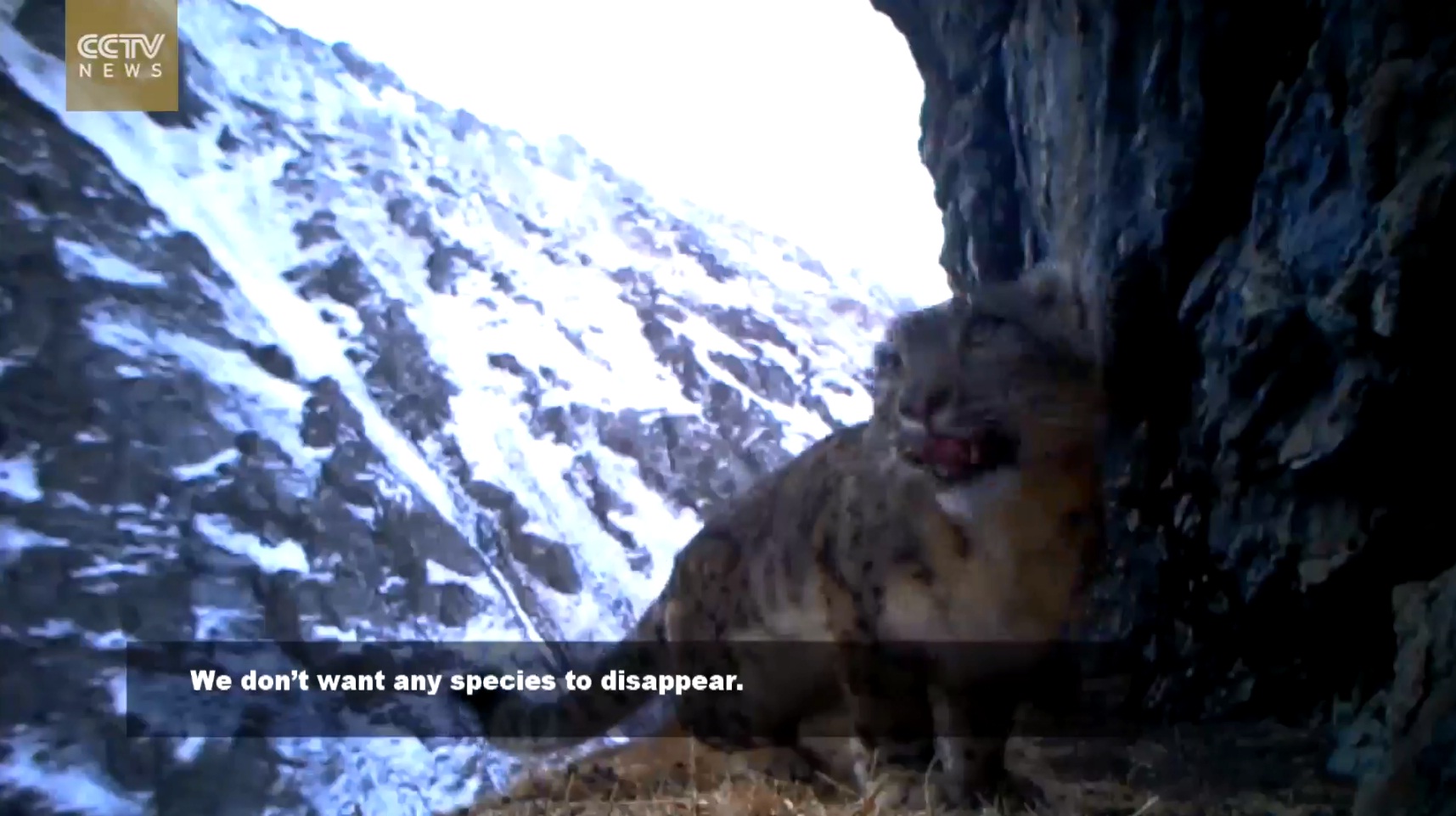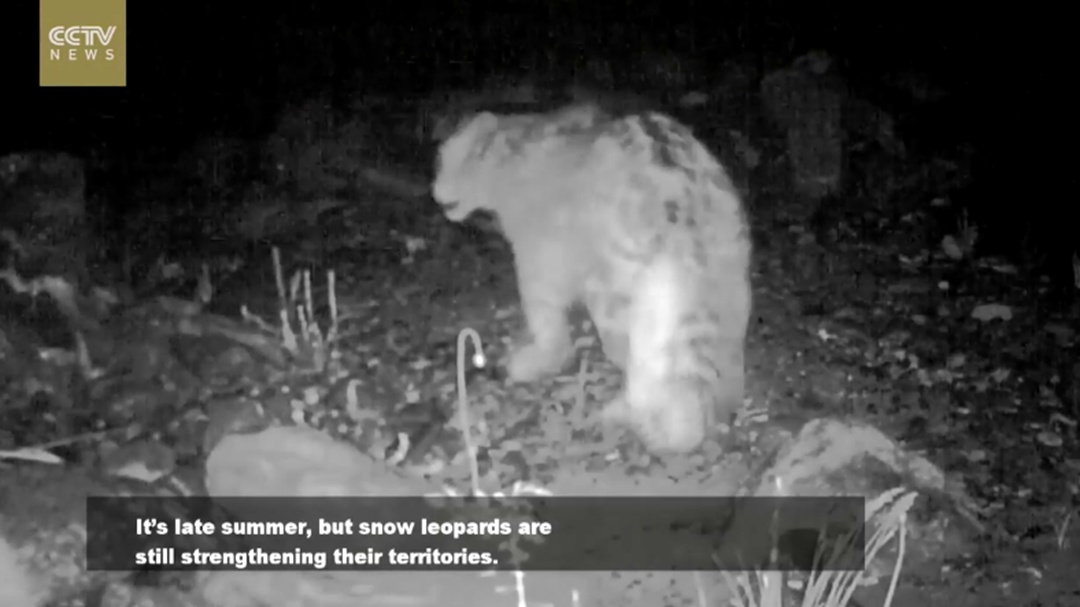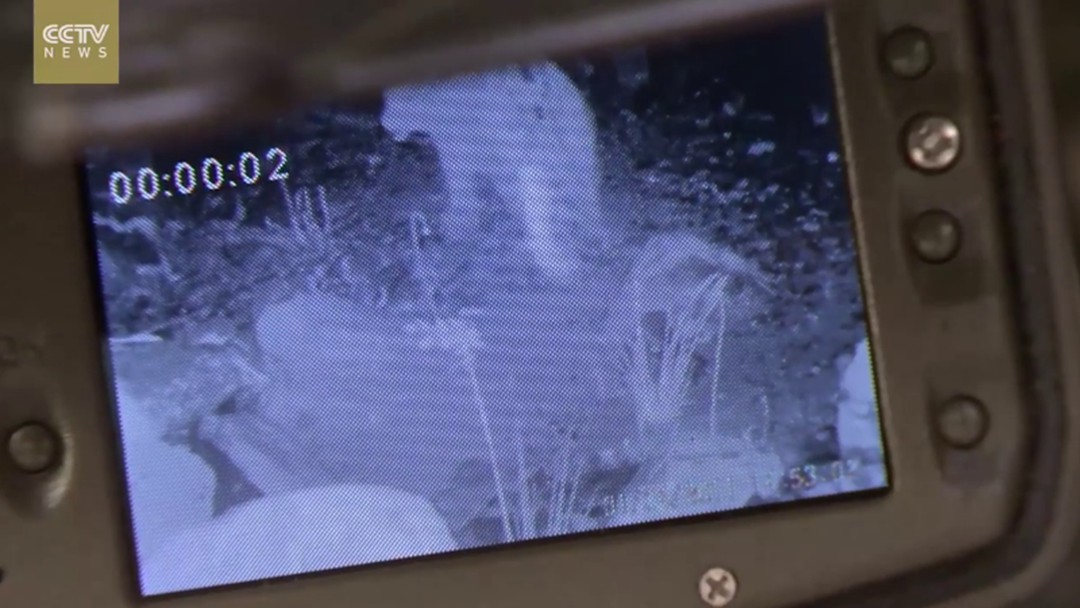
Culture & Sports
13:45, 16-Oct-2016
Tracking the elusive snow leopard in Xinjiang
Updated
10:19, 28-Jun-2018

In Xinjiang, snow leopards are rarely spotted. But if the region’s environmental threats keep multiplying, these furry felines might not be spotted at all.
“Xinjiang is an outdoor paradise. After years of traveling across its high mountains and wide rivers, I started to love this region from the bottom of my heart. All living creatures are equal,” said Xing Rui, Founder of Wild Xinjiang in Urumqi, the capital of the Xinjiang Uygur Autonomous Region.
“No matter whether it is grass, a butterfly, an ibex, or a snow leopard, they make up one big family on a rich food chain. We do not want any species to disappear,” he said.

Protecting snow leopards is not just about protecting one particular species; the task is more of a wholesome approach. A lot of ibexes are attacked by snow leopards, and such incidents could occur as snow leopards face shortage of food.
Snow leopards are ambush-type animals. They are not like lions chasing their prey on the plains; they also are not like tigers hiding in the bushes. They like to hide in low vegetation mountains, with steep rocks and complex terrain as camouflage, to get close to their unknowing kill.
The hushed hunting technique for which snow leopards are known, bears resemblance to the process that is killing these big cats. Extinction, too, often occurs unnoticed.
“We need to fully understand the value of snow leopards, and find out the real threats they are facing,” noted Xing who has set up 100 cameras, capturing the images of over 20 snow leopards.

“We are so lucky to have recorded a snow leopard again a month after its previous appearance. I can even recognize which one it is. It’s late summer, but snow leopards are still strengthening their territories,” he added.
The footage fully recorded the instance: a leopard nicknamed “Heizi,” showed up at midnight on July 23, and left a mark.
Snow leopards are found in three mountains in Xinjiang, but people may not be fully aware of their significance.

“We’ve found that the glacier on the mountain is melting. The speed has frightened the herdsmen. Protecting our homeland shouldn't be just a slogan. Nature is our homeland, which is not just the dozen square meters of your own apartment,” Xing remarked.
Xinjiang’s rapid economic development has brought about environmental problems over the years. “If more people care about environmental protection, the future of our homeland will get better,” said Xing.
Against the odds and despite the magnitude of the problems, Xing is decisive not to budge.
“I think what we are doing is meaningful. Maybe I can’t change too much. But I’m willing to do what I can in my lifetime. I'll stick to what I’m doing because I love it.”
(CCTVNEWS correspondent Han Bin reported the story.)

SITEMAP
Copyright © 2018 CGTN. Beijing ICP prepared NO.16065310-3
Copyright © 2018 CGTN. Beijing ICP prepared NO.16065310-3